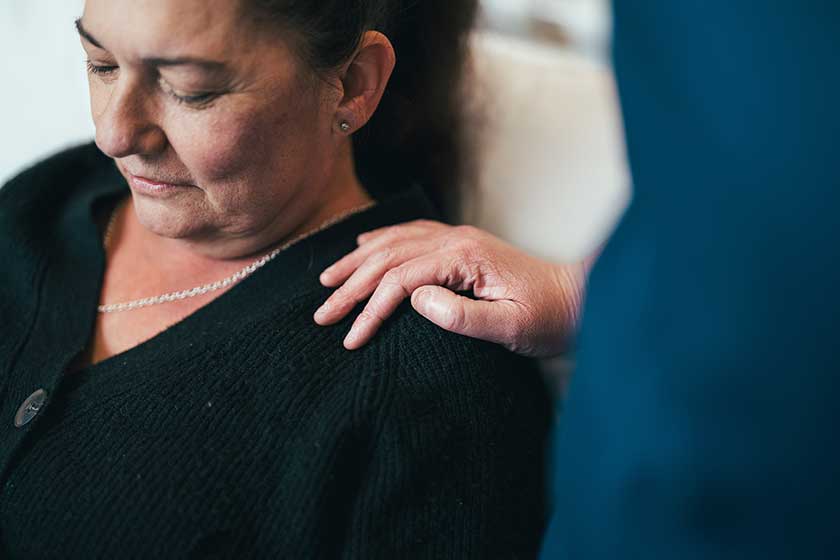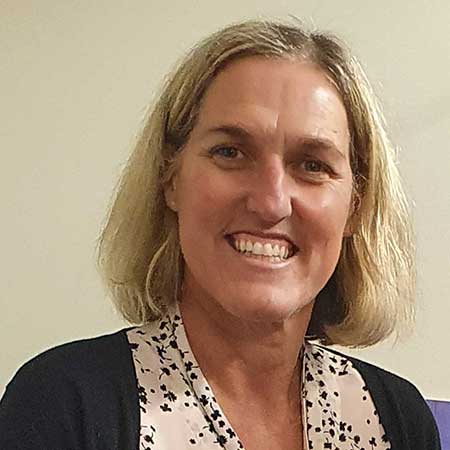Understanding anxiety
What is anxiety?
It’s normal to feel anxious sometimes. For example, you might feel worried or stressed if you have to speak in front of a large group, deal with a high-pressure situation at work or sit an exam.
Anxiety and stress are not always harmful. In fact, sometimes temporary worries or nerves about everyday situations can actually be helpful. These feelings can allow us to plan ahead, be prepared and react to a situation.
Anxiety can become an issue and can get worse over time if it’s not treated. This can look different for everyone. Some people can experience a lot of anxiety or worry for months. Others might experience panic attacks or intense fear, while other people might feel anxious about social situations such as parties, events or going out.
Anxiety could be more common than you think
According to recent statistics, one in eight Australians between the ages of 18 and 65 have experienced, or are currently experiencing, anxiety-related conditions in the past twelve months.
Anxiety can show as a range of conditions including obsessive-compulsive disorder (OCD), generalised anxiety disorder, social phobia, post-traumatic stress disorder, panic disorder and specific phobias such as fear of heights or spiders.
Signs and symptoms
In general, some of the signs and symptoms of anxiety can include:
- feelings of dread, worry or uneasiness
- feeling that something bad might happen soon
- difficulty concentrating
- a racing mind or repeated thought patterns.
Physical symptoms can include:
- problems with sleeping
- increased sweating
- dizziness or feeling lightheaded
- panic attacks
- “butterflies” in the stomach
- shortness of breath
- feelings of a pounding heart.
If you feel that anxiety has become an issue for you or someone you care about, there are plenty of treatment options you might like to explore.

Your treatment options
If you’re looking for anxiety treatment options for yourself or someone you care about, it’s important to look for treatments which are evidence-based. It’s worth getting help from a qualified and trained professional who can match your situation – including your physical and mental health, work, family and spiritual needs – with a tailored treatment program.
With the right treatment, you could find ways to feel better and:
- explore what causes your anxiety
- develop different ways of thinking, behaving and responding to anxiety and fear, such as how to challenge and change your thought patterns
- learn new skills and techniques to help you control and manage anxiety
- try some new strategies such as lifestyle changes to help you in the long-term.
You can support your general wellbeing with strategies such as mindfulness, eating a healthy diet, good sleep habits and regular exercise. We recommend getting support from dieticians and exercise physiologists with these approaches.
Specific treatments for anxiety can include cognitive behavioural therapy, acceptance and commitment therapy, mindfulness-based cognitive therapy and schema-focussed therapy.
These are the programs which we offer through St John of God Health Care.
Our treatments
We offer a range of mental health treatments across New South Wales, Victoria and Western Australia. The right treatment for you will depend on a range of factors including your location, how you’re feeling and the advice of your health care professionals.
Here are some details about the treatments which might be available to you.
Depending on what you’re experiencing, you might be referred for admission in one of our inpatient treatment programs. With this type of treatment:
- You will stay in one of our hospitals or inpatient facilities for one night or more.
- Your stay might be planned in advance or could be the result of an unplanned illness or exposure to trauma.
- You’ll receive care from our doctors, nurses, psychologists and other types of health care professionals to meet your needs.
- You might need medication, care, monitoring and treatment, which can be provided by our around-the-clock medical team.
When a doctor discharges you from your inpatient treatment, you’ll receive a plan for what happens after your stay. This might include instructions to follow up with doctors, take prescribed medication or referrals to our day programs or community services, depending on what’s right for you.
We offer a range of day programs which could help you learn how to manage trauma, perinatal mental health conditions, alcohol and drug misuse, anxiety or depression.
Our day programs are structured, group therapy sessions, tailored for the needs of your group. You could join a day program which is run once or twice a week, over a period of weeks or months.
In each session, you’ll work with our specialised therapists to learn how to build life skills, manage your symptoms and explore ways to feel better as you get back into your everyday activities. Our day programs could be part of your treatment, following a stay in hospital through our inpatient care.
Depending on your needs, you might be referred for an appointment with one of our psychiatry team. They will work with you to discuss your needs and find the best treatments to help your recovery.
We provide a range of community mental health services for young people, adults and families, including programs for perinatal mental health. Our services are provided by specialist clinicians and mental health workers.
These programs are designed to help support your recovery and stay well in the community.
Learn more about:
Locations
In the community
Community mental wellbeing services across New South Wales, Victoria and Western Australia.
Our community mental wellbeing services are located in:
Victoria
- Ballarat
- Bendigo
Western Australia
- Cockburn
- Mandurah
- Midland
- Pinjarra
Our community perinatal mental health services are located in:
New South Wales
- Blacktown
Victoria
- Ballarat
- Bendigo
- Berwick
- Geelong
Western Australia
- Cockburn
- Mandurah
- Midland
- Wanneroo
- Wembley
This service is located in:
Western Australia
- Midland
- Mirrabooka
- Gosnells
- Armadale
This service is located in:
Western Australia
- Perth metropolitan area
Learn more about St John of God Drug and Alcohol Withdrawal Network >
This service is located in:
Western Australia
- Bunbury
- Busselton
- Outreach services throughout the South West region
Learn more about St John of God South West Community Alcohol and Drug Service >
Urgent care
If you or someone close to you is in distress or at risk of harm, call 000.





